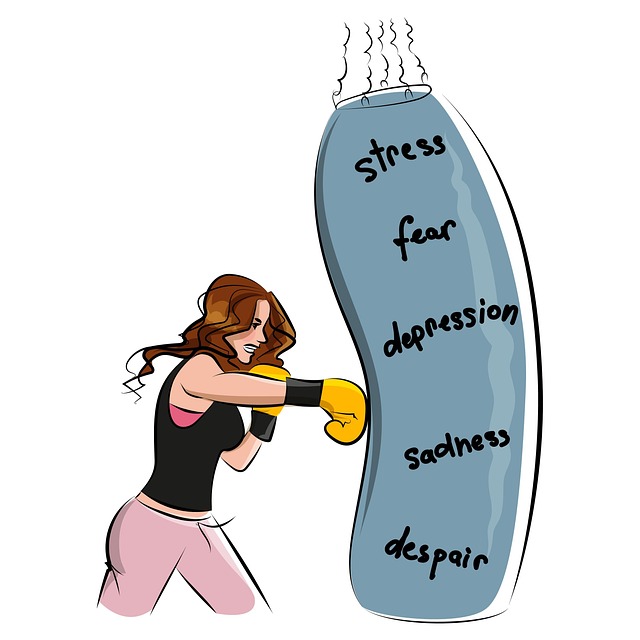Westminster Abuse Survivors Therapy (WAST) focuses on empowering individuals to manage their emotions healthily through resilience and stress management skills, crucial for long-term recovery from trauma. Integrating cognitive behavioral techniques (CBT), mindfulness, meditation, and social support, WAST helps survivors develop healthier coping mechanisms, enhance self-awareness, and build emotional resilience, leading to improved mood regulation and mental wellness. Cultural sensitivity ensures tailored care for diverse populations, fostering deeper connections and understanding, which in turn improves overall well-being.
Mood regulation strategies are essential tools for healing among Westminster Abuse Survivors. This article delves into various techniques designed to help individuals navigate and manage their emotional well-being post-trauma. We explore the profound impact of trauma on mental health, offering insights into cognitive behavioral therapies, mindfulness practices, and the power of social connection. By understanding these strategies, survivors can empower themselves on their journey towards therapy and recovery.
- Understanding Mood Regulation: A Crucial Aspect of Healing for Westminster Abuse Survivors
- The Impact of Trauma on Emotional Well-being: A Closer Look
- Cognitive Behavioral Techniques for Effective Mood Management
- Mindfulness and Meditation: Cultivating Present-Moment Awareness
- Building a Supportive Network: Social Connection as a Mood Regulator
Understanding Mood Regulation: A Crucial Aspect of Healing for Westminster Abuse Survivors

Understanding Mood Regulation is a pivotal aspect of healing for Westminster Abuse Survivors. Trauma often leads to intense and unpredictable emotional states, making it essential to learn effective mood regulation strategies. Westminster Abuse Survivors Therapy focuses on empowering individuals to manage their emotions healthily, which is crucial for long-term recovery. By developing resilience and stress management skills, survivors can navigate the aftermath of abuse more effectively.
Public awareness campaigns play a significant role in supporting these efforts by educating the public about the complexities of trauma and its impact on mental health. Raising awareness encourages empathy, fosters understanding, and promotes the development of supportive environments for Westminster Abuse Survivors. Integrating mood regulation techniques into therapy empowers survivors to reclaim their emotional well-being and build a more robust sense of self.
The Impact of Trauma on Emotional Well-being: A Closer Look

Trauma has a profound impact on an individual’s emotional well-being, often leading to prolonged challenges in regulating mood and managing mental health. This is particularly evident in survivors of abuse, such as those seeking support through Westminster Abuse Survivors Therapy (WAST). The effects of trauma can disrupt the brain’s natural balance, making it difficult for individuals to process and respond to emotions effectively. This can result in heightened anxiety, depression, and difficulties in coping with everyday stressors.
Understanding the relationship between trauma and emotional regulation is crucial. WAST often incorporates therapeutic approaches like Social Skills Training, Positive Thinking techniques, and Compassion Cultivation Practices to aid in recovery. These strategies help survivors develop healthier coping mechanisms, enhance self-awareness, and foster a sense of resilience. By addressing the underlying impact of trauma on emotional processing, these practices contribute to long-term improvements in mood regulation, enabling individuals to navigate their emotional landscapes with greater ease and clarity.
Cognitive Behavioral Techniques for Effective Mood Management

Cognitive Behavioral Techniques (CBT) offer powerful tools for managing and regulating moods effectively. This evidence-based approach has proven to be particularly beneficial for individuals, especially those who have experienced trauma, such as survivors of Westminster Abuse Survivors Therapy (WEST). CBT focuses on identifying and challenging negative thought patterns and replacing them with healthier alternatives. By learning to recognize triggers and modifying cognitive responses, individuals can significantly influence their emotional state.
The Mental Wellness Podcast Series Production often incorporates CBT principles to enhance mental wellness. Crisis Intervention Guidance, a crucial aspect of these techniques, equips people with rapid coping strategies during intense emotional periods. Through CBT, survivors of trauma can develop resilience, gain control over their emotions, and improve overall well-being. This therapeutic method encourages individuals to take an active role in understanding and managing their moods, fostering a sense of empowerment in navigating life’s challenges.
Mindfulness and Meditation: Cultivating Present-Moment Awareness

Mindfulness and meditation are powerful tools for cultivating present-moment awareness, a key aspect of mood regulation. By focusing on the here and now, individuals can learn to observe their thoughts and emotions without judgment, allowing them to detach from negative or anxious feelings. This practice, often at the heart of Westminster Abuse Survivors Therapy, enables people to develop a deeper understanding of themselves and their triggers, which is crucial for depression prevention and mood management.
Through regular meditation, one can enhance self-awareness and empathy building strategies. By recognizing and accepting emotions as they arise, individuals can better navigate intense feelings, leading to improved emotional resilience. This practice has been shown to reduce symptoms of anxiety and depression, offering a natural and effective way to support mental health and overall well-being.
Building a Supportive Network: Social Connection as a Mood Regulator

Building a supportive network is an essential aspect of mood regulation, and this is particularly significant for individuals who have experienced trauma or abuse, such as those seeking support from Westminster Abuse Survivors Therapy. Social connection serves as a powerful mood regulator, offering a sense of belonging and validation that can mitigate the effects of stress and anxiety. The power of community is undeniable; connecting with like-minded individuals provides a safe space to share experiences, gain perspective, and offer mutual support, fostering resilience against adversity.
Through engaging in meaningful social interactions, whether through support groups, therapy sessions, or community events, individuals can tap into Mind Over Matter principles, where the mind’s ability to influence emotional states is harnessed. This concept, coupled with Cultural Sensitivity in Mental Healthcare Practice, ensures that diverse populations receive tailored care, fostering a deeper sense of connection and understanding. By embracing these connections, individuals can navigate life’s challenges more effectively, enhancing their overall well-being and mood regulation capabilities.
For Westminster abuse survivors, mood regulation strategies are essential tools in their therapeutic journey. By understanding the impact of trauma on emotional well-being and employing evidence-based techniques such as cognitive behavioral therapy, mindfulness practices, and building supportive networks, individuals can effectively manage and improve their moods. These strategies not only enhance healing but also empower survivors to navigate life’s challenges with greater resilience and emotional balance. Through Westminster Abuse Survivors Therapy, these tools become accessible, offering hope and a path towards a brighter future.













